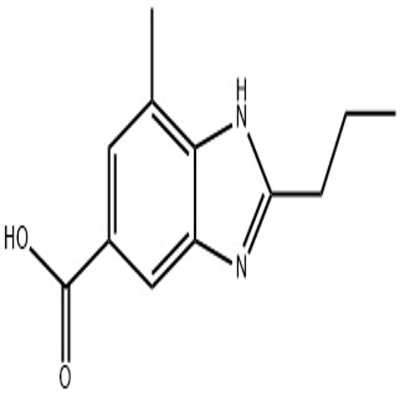-
Categories
-
Pharmaceutical Intermediates
-
Active Pharmaceutical Ingredients
-
Food Additives
- Industrial Coatings
- Agrochemicals
- Dyes and Pigments
- Surfactant
- Flavors and Fragrances
- Chemical Reagents
- Catalyst and Auxiliary
- Natural Products
- Inorganic Chemistry
-
Organic Chemistry
-
Biochemical Engineering
- Analytical Chemistry
-
Cosmetic Ingredient
- Water Treatment Chemical
-
Pharmaceutical Intermediates
Promotion
ECHEMI Mall
Wholesale
Weekly Price
Exhibition
News
-
Trade Service
6-(Bromomethyl)-4(3H)-pyrimidinone, also known as N-bromosuccinimide or NBS, is an organic compound that is widely used in the chemical industry.
It is a colorless solid that is soluble in many organic solvents and is commonly used as a reagent in a variety of chemical reactions.
One of the main applications of NBS is in the synthesis of polymers.
NBS can be used as a initiator in the polymerization of vinyl monomers, such as styrene and acrylates, to form polymers such as polyvinyl chloride (PVC) and poly(methyl methacrylate) (PMMA).
NBS is also used in the synthesis of other polymers, such as polyurethanes and polyamides.
NBS is also used as a reagent in the synthesis of pharmaceuticals and agrochemicals.
For example, it can be used to synthesize the anti-inflammatory drug ibuprofen and the herbicide glyphosate.
NBS can also be used in the synthesis of dyes and pigments, such as naphthol red and sunfast yellow.
NBS is also used in the production of electronic materials.
It can be used in the synthesis of semiconductor materials, such as poly(ethylene dioxythiophene) (PEDOT), which is used in conductive ink applications.
NBS can also be used in the synthesis of organic light-emitting devices (OLEDs) and organic solar cells.
Another application of NBS is in the field of material science.
NBS can be used in the modification of surfaces, such as glass and silicon, to create functionalized surfaces with specific properties.
For example, NBS can be used to create silicon surfaces that have a high hydrophilicity, making them useful in biomedical applications.
NBS is also used in the field of biotechnology.
It can be used to synthesize oligonucleotides, which are short chains of nucleotides that are used in a variety of applications, such as DNA sequencing and gene therapy.
NBS can also be used in the synthesis of peptides and proteins, which are important for the study of protein structure and function.
In addition to its wide range of applications, NBS is also known for its high reactivity and selectivity in various chemical reactions.
This makes it a popular reagent in organic synthesis, as it can be used to introduce bromine atoms into organic compounds in a controlled manner.
This allows for the synthesis of a wide range of compounds with specific properties and functions.
Overall, NBS is a versatile reagent that is widely used in the chemical industry, in a variety of applications such as pharmaceuticals, agrochemicals, electronics, material science, and biotechnology.
Due to its reactivity and selectivity, it is a valuable tool for organic synthesis, and its uses are expected to continue to expand in the future as new applications are discovered and developed.





![benzyl N-{2-[4-(4,4,5,5-tetramethyl-1,3,2-dioxaborolan-2-yl)phenyl]ethyl}carbamate](https://file.echemi.com/fileManage/upload/goodpicture/20210823/m20210823171124543.jpg)

